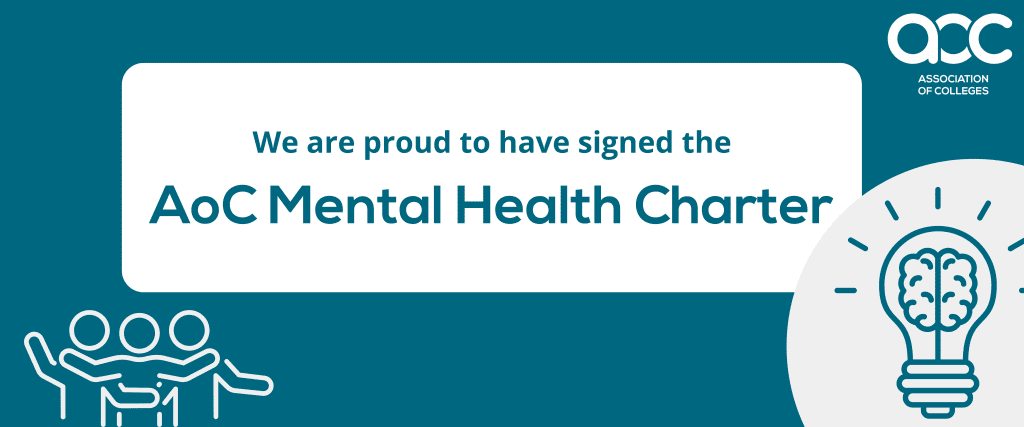Employment Opportunities at Dudley College of Technology
Welcome to Dudley College Human Resources. Click on the button below to view the current vacancies currently available at the college. Click on the position for more details and its application process. If you have already registered and started the process, login to our vacancies portal and continue your application or view its progress.
You might find it useful to read more about the college before you complete your application.

Thank you for your interest in applying for a job with Dudley College of Technology.
The application form that you complete is used to tell us what competencies, skills and experience you have that are relevant to the role that you are applying for. In order to make the best use of this opportunity, please read the following guidance notes before completing the application form.
Please remember it is essential to complete all sections of the form. You should look to demonstrate that you meet all of the identified criteria for the role, especially the essential criteria and try to keep answers relevant and concise.
Guidance on individual sections
Some of the questions on the application form are self-explanatory, or have their own individual instructions. This guide highlights those areas that may need further explaining.
Details of previous employment: Please provide a brief outline of your most current role so that we will know what that particular job involved. Please ensure that you provide details of all of your employment since leaving full time education. Any gaps in your employment history must be explained.
Qualifications: Please list your qualification, grades and dates achieved or expected as requested. You will be required to provide evidence of your qualifications prior to commencement with the college.
Experience: It is important that you read the job description detailing the Essential and Desirable criteria which we have identified that the post holder will need in order to do that particular post.
In the ‘General’ section of the application form you will need to provide evidence and examples relating to the criteria specified for this post. These will be included in the person specification at the back of the job description. It is recommended that you do not list and describe duties that you have performed, or simply say ‘I have good communication skills’, or ‘I am a good team worker’. You must give specific examples that demonstrate how you have applied those skills. Your examples do not have to come from your current or previous work experience – think about your social or domestic experiences, voluntary or unpaid work, time at college or in other educational setting.
In order for us to decide which applicants to invite to interview, we assess this particular area of the application form to identify those that provide appropriate evidence of the requirements. It is important that you make sure you have given examples of the behaviours/technical activities/special requirements specified for consideration at the short-listing stage. If you do not give an example of a particular requirement, we have to assume that you do not meet those criteria.
Examples of competencies:
- Team working - I worked as part of a team of 5 people when I worked at X borough council. At our weekly team meetings I suggested ideas to improve team working e.g. multi-skilling. On occasions I assisted colleagues in the invoice section to ensure that they met monthly deadlines.
- Communication (non written) - At the ‘Y services company’, my role involved responding to enquiries from members of the public on the telephone relating to ‘A’ and ‘B’ products. I also had daily contact with the Services Manager, arranging meetings on his/her behalf. I also liaised with service engineers at the site workshop regarding the completion of attendance records and overtime claim queries.
Disclosure of criminal background: Successful candidates will be required to undertake an enhanced disclosure and barring service check. If you believe that you have been involved in a criminal offence, then please enter the details here. If you have any doubt, please include the information and let us decide what is relevant or irrelevant. If you are offered employment, then any failure to disclose such convictions could result in your offer being withdrawn. If you have no convictions, please select ‘No’.
The next steps
- Please submit your application form before the closing date in order for it to be considered.
- If you have been selected for interview, we will contact you usually within four weeks of the closing date.
- If you do not hear from us within this time, please assume that you have been unsuccessful.
- Please do not let this deter you from applying for any future vacancies for which you think you are suitable.
The interview: There is normally a two stage interview and selection process. The first stage is a practical, task based, role related assessment.
Only candidates who have successfully completed stage one of the interview process will progress to the second stage which is a formal interview.
After the interview:
If you are offered the post:
- You will be told verbally as soon as possible following the interview that you are the successful candidate, this will be confirmed in writing.
- Your offer of employment is subject to receipt of two good or better references (one of which must be from your current/last employer), proof of your relevant qualifications, proof of identity and an enhanced disclosure and barring service check being completed.
- Upon receipt of the above, we will then write to you to confirm your start date and provide you with your contract of employment.
- You should not give notice if you are in employment until you have received written confirmation of your start date from the human resources department.
If you are not offered the post:
- You will be advised verbally as soon as possible following the interview that you are not the successful candidate; please be advised that it is not our policy to provide applicants with interview feedback.
- Please do not let this deter you from applying for any future vacancies for which you think you are suitable.
Equality and Diversity
Dudley College of Technology is committed to creating a culture in which equality of opportunity and diversity are promoted actively and in which unlawful discrimination is not tolerated.
The college recognises the real educational and business benefits of having a diverse community of staff and is working towards building and maintaining an environment which values and celebrates diversity.
The college promotes equality of opportunity through its recruitment advertising, recruitment process and appointment of the successful candidate.
All staff are trained in Equality & Diversity matters, this is facilitated by both on-line and attended events.
The college is certified as a ‘Disability Confident Employer’.
We are also supporting West Midlands Colleges initiative to recruit from under represented communities in this sector. See the video below for more.
Recruitment of ex-offenders
Scope: This statement applies to all applicants applying for jobs at the college and is made available to all applicants at the outset of the recruitment process.
Introduction: Dudley College of Technology is committed to safeguarding and promoting the wellbeing of its students and staff. The college ensures that all relevant procedures and recommendations set out by Dudley Safeguarding Children’s Board (DSCB) are followed and all safeguarding legislation and guidance is adhered to.
To meet these obligations, a disclosure and barring service (DBS) enhanced disclosure is undertaken as part of the recruitment process for all new staff, once they have been offered a role with the college.
As an organisation using the DBS disclosure service to assess applicants suitability for all positions, Dudley College of Technology complies fully with the DBS code of practice and undertakes to treat all applicants for positions fairly. It undertakes not to discriminate unfairly against any subject of a disclosure on the basis of conviction or other information revealed.
Dudley College of Technology is committed to the fair treatment of its staff and potential staff regardless of race, gender, religion, sexual orientation, responsibilities for dependants, age, physical/mental disability or offending background.
Rehabilitation of Offenders Act 1974: As Dudley College of Technology is an educational establishment, it is permitted to ask questions about an applicant’s entire criminal records, including ‘spent’ convictions, as defined by the Rehabilitation of Offenders Act 1974.
Principles: The college actively promotes equality of opportunity for all with the right mix of talent, skills and potential. The college selects candidates for interview on the basis of their skills, qualifications and experience.
Application forms, job adverts and job descriptions will contain a statement that a disclosure will be requested in the event of the individual being offered the position, so that applicants are aware.
As a disclosure forms part of the recruitment process, applicants are encouraged to provide details of a criminal record at an early stage in the application process. We request that this information is included on the application form and we guarantee that this information will only be seen by those who need to see it as part of the recruitment process.
The college ensure that all those involved in this process have been suitably trained to identify and assess the relevance and circumstances of offences. We also ensure that they have received appropriate guidance and training in the relevant legislation relating to the employment of ex-offenders.
At interview, or in a separate discussion, we will ensure that an open and measured discussion takes place on the subject of offences, or other matters that may be relevant to the position. Failure to reveal information that is directly relevant to the position sought could lead to the withdrawal of an offer of employment, or the termination of employment if employment has already started.
The college undertakes to discuss any matter revealed in a disclosure with the person concerned before withdrawing a conditional offer of employment.
Having a criminal record will not necessarily bar an individual from working at the college. This will depend on the nature of the position and the circumstances and background of the offences.
Secure storage, handling, use, retention and disposal
Dudley College of Technology complies fully with the DBS code of practice regarding the correct handling, use, storage, retention and disposal of disclosures and disclosure information. It also fully complies with its obligations under the Data Protection Act and other relevant legislation pertaining to the safe handling, use, storage, retention and disposal of disclosure information.
Disclosure information is never kept on an applicant’s personnel file and is always kept separately and securely, in lockable, non-portable, storage containers with access strictly controlled and limited to those who are entitled to see it as part of their duties.
In accordance with section 124 of the Police Act 1977, disclosure information is only passed to those who are authorised to receive it in the course of their duties. We maintain a record of all those to whom disclosures or disclosure information has been revealed and we recognise that it is a criminal offence to pass this information to anyone who is not entitled to receive it.
Disclosure information is only used for the specific purpose for which it was requested and for which the applicant’s full consent has been given.
Once a recruitment (or other relevant) decision has been made, we do not keep disclosure information for any longer than is absolutely necessary. This is generally for a period of up to six months, to allow for the consideration and resolution of any disputes or complaints. If, in very exceptional circumstances, it is considered necessary to keep disclosure information for more than six months, we will consult the DBS about this and will give full consideration to data protection and human rights before doing this. Throughout this time, the usual conditions regarding safe storage and strictly controlled access will prevail.
Once the retention period has elapsed, we will ensure that any disclosure information is immediately suitably destroyed by secure means. While awaiting destruction, disclosure information will not be kept in any insecure receptacle. We will not keep any photocopy or other image of the disclosure or any copy of representation of the contents of the disclosure. However, notwithstanding the above, we keep a record of the date of issue of a disclosure, the name of the subject, the type of disclosure requested, the position for which the disclosure was requested, the unique reference number of the disclosure and details of the recruitment decision taken.
Process for dealing with a disclosure
Applicants who have a criminal record, including cautions, reprimands, warning and convictions must provide details of the offences, including dates on the application form when applying for a post. This will only be seen by the human resources department and will remain confidential.
The human resources department will assess the information based on:
- Whether the post involves one-to-one contact with children, students or visitors.
- Whether the post involved any direct responsibility for finance or cash handling.
- The level of supervision the post holder will receive.
- The seriousness and relevance of the offence history.
- Whether the offence suggests any safety implications to staff, students or property.
- The length of time since the offence(s).
- The age of the applicant at the time.
- The background to the conviction.
- Any changes to the applicants circumstances since the offence was committed.
- Whether the offence had been decriminalised or, where a conviction is committed abroad or in Scotland, whether the action would constitute a crime within England and Wales.
- Any relevant information provided by the applicant relating to the offence (e.g. domestic issues, financial difficulties, etc).
In exceptional circumstances, where the offence is considered serious enough to bar an individual from employment in the post for which they have applied (for example, the applicant is found to be on the sex offenders register) the human resources department will write to the applicant to inform them that the college will be unable to take the application further.
Where further information is required, a member of the human resources department will contact the applicant directly and, where necessary, arrange to meet with the applicant to discuss the relevant conviction.
Where the information is not considered serious enough to bar an individual from employment in that role, their application will be assessed on the relevant knowledge, skills, qualifications and experience for the role and where an applicant is successful in being selected for interview they will be assessed on the same criteria.
Where the panel wish to appoint an individual who has provided details of a criminal record, human resources will decide whether any further action should be taken.
All offers of appointment are made subject to the relevant employment checks, which include a DBS check.
Where information is received from the DBS that has not been provided, or contradicts information provided by the applicant, the college will arrange to meet with the new appointee to discuss the information received.
Failure to provide information or providing inaccurate information could result in the college withdrawing the offer of employment. The final decision will be made by the Principal.
DBS checks are completed for all staff every 3 years.
Should an employee receive a conviction during the course of their employment, they are obliged to submit details of the offence to the human resources department as soon as possible.
Safeguarding Recruitment Statement
Dudley College of Technology is committed to safeguarding and promoting the wellbeing of its students and staff. We fully recognise that it is the responsibility of all staff to ensure that all students are safe and feel safe in the college environment.
The college ensures that all relevant procedures and recommendations set out by Dudley Safeguarding People Partnership are followed and all safeguarding legislation and guidance is adhered to.
All applicants will be subject to recruitment selection procedures designed to emphasis the college’s commitment to safeguarding, in line with the Safeguarding Children and Safer Recruitment in Education guidance. The chair of all interview panels will have successfully completed the safer recruitment in education training.
All successful applicants will need to provide a minimum of two satisfactory references including one from your most recent or current employer/employers, undertake an enhanced disclosure and barring service (DBS) check (and overseas criminal records check if applicable) and verification of their qualifications prior to appointment.
An online search of all successful applicants will also be completed.
Further disclosure and barring service checks and barred list checks are undertaken for all staff on a three-year rolling programme.
All staff are required within 6 weeks of appointment to complete safeguarding and prevent training courses and undertake any other necessary safeguarding or prevent training as directed by the college. All managers will also complete safer recruitment training.
At induction all staff are required to sign and confirm receipt of the college’s safeguarding policy, code of conduct, part one of Keeping Children Safe in Education and safe working practice for adults who work with children and young people. The college has a designated senior member of staff who is the college’s Safeguarding Officer and a designated member of the corporation responsible for safeguarding. The college also has a designated safeguarding team.
Please read our full safeguarding policy and safeguarding - children and adults procedure available from our Documents, Policies & Procedures page.
From 2017, The Education and Training Foundation standards have changed.
New entrants into the Further Education Sector will have to undertake the appropriate stage of the new teaching qualifications according to the criteria listed below.
| Previously known as | New Title | Teaching Criteria |
|---|---|---|
| Level 3/4 Preparing to Teach in the Lifelong Learning Sector (PTLLS) | Level 3 Award in Education and Training | All new teachers or prospective teachers |
| Level 4 Certificate to Teach in the Lifelong Learning Sector (CTLLS) | Level 4 Certificate in Education and Training | For those who deliver some teaching or training |
| Level 5 Diploma to Teach in the Lifelong Learning Sector (DTLLS) | Level 5 Post Graduate Certificate in Education (PCE – Post Compulsory Education) | Only teachers who teach a range of groups and levels in a full time or substantial teaching capacity |
All staff on a variable hours Lecturer contract must obtain or be working towards the Level 3 Award in Education and Training.
Staff on a full-time teaching contract must undertake the Level 5 Post Graduate Certificate in Education (PCE – Post Compulsory Education) qualification within one year of employment.
Qualifications for Existing Teachers
- Those teaching in FE prior to September 2001 remain exempt from the statutory requirement to gain a teaching qualification.
- Those teachers already regarded as holding an appropriate teaching qualification under the 2001 regulations will continue to be regarded as qualified.
- Those teachers who entered FE after September 2001 and have since gained a teaching qualification under the 2001 regulations continue to be regarded as qualified.
From 2024/25 academic year the government have introduced targeted retention incentive payments for eligible FE teachers in the following subject areas :-
- Building and Construction
- Chemistry
- Computing, including digital and ICT
- Early Years
- Engineering and manufacturing, including transport engineering and electronics
- Maths
- Physics
To be eligible to apply you must be in your first 5 years of your FE teaching career, therefore if you were employed as a teacher in FE in the 2019 to 2020 academic year or before, you are not eligible to claim.
Please see the remaining eligibility criteria below :-
You can apply for a payment if you:
- are employed as an FE teacher in England
- are employed by an eligible FE provider
- spend at least half of your hours, on average, teaching eligible FE courses at level 3 or below
- teach more than 2 and a half hours a week
- spend at least half of your hours teaching 16- to 19-year-olds (study programmes, T levels or apprenticeships) including people up to the age of 25 with an EHCP
- are not currently subject to any formal performance measures as a result of continuous poor teaching standards
- are not currently subject to any disciplinary action
You must also meet one of the following criteria:
- have a teaching qualification
- are currently enrolled on and working towards a teaching qualification
- intend to enrol on a teaching qualification within the next 12 months
If you only hold an assessor qualification, you are only eligible if either you:
- are enrolled on a teaching qualification
- intend to enrol on a teaching qualification in the next 12 months
We also expect you to have developed, enhanced and maintained your teaching competences and practices, or have plans to do so.
For the 2024 to 2025 academic year, the target retention incentive payments range from £2000 to £6000 depending on the provider you teach at and the number of hours that you teach.
Written complaints, compliments and suggestions about the application process and appeals against the outcome of the short listing should be addressed for the attention of the Head of Human Resources by e-mail to humanresources@dudleycol.ac.uk or alternatively by letter within 10 working days of the receipt of notification of the outcome of your application. The Head of Human Resources will fully investigate the matter and endeavour to respond to the appellant’s satisfaction within 10 working days. The Head of Human Resources decision is final and there is no further appeal against the outcome of the short-listing process.
If you have any queries at any stage of the recruitment process, please do not hesitate to contact the human resources department on 01384 363 065.








